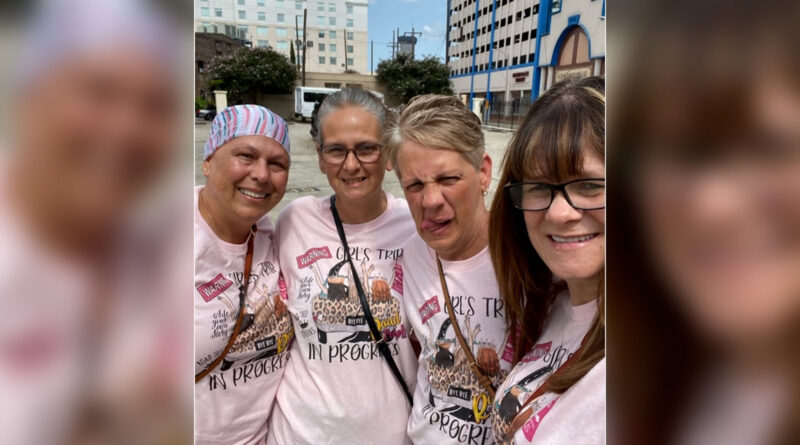Genetic testing reveals four sisters share mutations for high-risk cancers, including breast cancer
Christine, Tracy, Shelley, and their older sister Lisa Lege, wanted genetic testing as their grandmother and mother had gynecological cancer.
NEW ORLEANS – Our genes hold great secrets about our lives and our future. And for four sisters, unlocking those secrets saved their lives. Now they are encouraging others to do the same.
They are four close sisters from Westbank, growing up, who share everything.
“Right now we still have to share everything. We did hand-me-downs. What doesn’t come from me, I have to give it to them. What they don’t deserve, they give me.” said Tracy Helmer, 48.
But recently, when the youngest, Tracy, was diagnosed with breast cancer, they all discovered they shared something strange.
“It’s the worst thing you’ve ever wanted to hear. It’s the worst thing ever,” Christine Rios, 55, said.
Christine, Tracy, Shelley, and their older sister Lisa Lege, wanted genetic testing as their grandmother and mother had gynecological cancer. The insurance company intervened.
Then, through Tracy, a third generation cancer survivor, it was accepted.
They got genetic testing and all four were positive for mutations that put them at higher risk for different types of cancer, including breast, ovarian and even pancreatic. They decided to be proactive, scheduling double preventive mastectomies, hysterectomies and oophorectomies to prevent cancer.
And that decision saved Christine.
I’m going to have a blood test to make sure I’m healthy enough to have a hysterectomy, then get another test. My CA125 is a blood test. It was off the charts. I don’t even know how long I had ovarian cancer because I had no symptoms. Zero,” said Rios.
“I saved my sisters’ lives, and that’s what was important to me, was saving their lives,” said Helmer.
The sisters say that if the insurance company allowed them to do genetic testing sooner, it would have been better for them to find the cancer earlier, but the overall cost would have been lower. .
“And if the provider you’re seeing isn’t giving you the answers you want, and you feel like you need those tests, just ask for a referral,” explains Dr. Tara Castellano, a gynecologist at LSU Health Sciences Center New. Orleans, who works in the Cancer Center at the University Medical Center.
Dr. Castellano recommends genetic testing and says you’re eligible if cancer runs in your family.
“I tell my patients that knowledge is power. The more knowledge you have, the more power you have to control your life, and cancer is the best, the best way to to cure cancer, is to prevent it,” said Dr. Castellano.
“It upset us all. That’s right, and that’s why it’s good for anyone, you know, who had cancer in their family, to get checked. Yeah, you know, because it could be you, just like us,” said Shelley Creppel, who underwent genetic testing but never developed cancer.
All the children of our sisters have been tested, or plan to be when they reach the age of 25. Girls and boys will be tested as those changes put men at risk of prostate, breast and pancreatic cancer.
Rois said: “My fight is not over until the day I die.
“We’re going to be fighting for the rest of our lives,” Creppel said.
“We’re here,” Rois added.
The doctor says that if your insurance company won’t reimburse you for genetic testing, some companies have low-cost options, or free testing.
Click here to report a typo.
► Get the latest local news delivered directly to you by downloading the new FREE WWL-TV News app from the IOS App Store or Google Play.
#Genetic #testing #reveals #sisters #share #mutations #highrisk #cancers #including #breast #cancer
